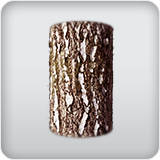-
About us
- Gift Cards
- Plant Library
-
Events & Services

SHOP ALL EVENTS & SERVICES >
Stylist Appointments
Make & Take Workshops
Private Plant Workshops for Groups
Corporate Planting Service
Commercial Landscaper Application
Spring Photo Sessions
Custom Arrangement Request
Plants & Pots-
Planters & Accessories
-
Garden Bulbs
- All Garden Bulbs
-
Seeds
- Potatoes
-
Perennials
-
Trees & Shrubs
- All Trees & Shrubs
-
Shrubs
- Sod
- Trees
- Fruit Trees
- Not available for online purchase

SHOP ALL PLANTS & POTS >
Planters & Accessories
Planters
Plant Accessories
House Plants
Citrus Trees
Seasonal
Trendy Tropicals
Succulents & Cacti
Potted Plants
Garden Bulbs
Bulbs
Seeds
Potatoes
Annuals
Herbs
Hanging Baskets
Custom Planters
Perennials
Shade
Shade-Ground Cover
Sun
Sun-Alpine
Vines
Trees & Shrubs
Evergreen
Shrubs
Sod
Trees
Fruit Trees
Not available for online purchase
Plant Care-
Plant Fertilizer
- All Plant Fertilizer
- Houseplant Fertilizer
-
Fertilizer for Perennials & Annuals
- Trees, Shrubs & Evergreens
-
Pest Control
-
Growing Supplies
-
Lawn Care
-
Bagged Soil, Rocks & More
- Beneficial Garden Insects
-
 Rick's Top Products
Rick's Top Products

SHOP ALL PLANT CARE >
Plant Fertilizer
Houseplant Fertilizer
Fertilizer for Perennials & Annuals
Trees, Shrubs & Evergreens
Pest Control
Rodent Control
Fungicides
Insects
Growing Supplies
Soil Meters & Testing
Lawn Care
Lawn Fertilizer & Seed
Weed Control
Sod
Bagged Soil, Rocks & More
Bagged Soil
Soil Amendments
Decorative Rocks
Tools
Gardening Gloves
Watering Tools
Gardening Tools
New Products
Beneficial Garden Insects
Rick's Top Products
Fashion-
Accessories
-
Tops
- All Tops
- Blazers
- Bodysuits
- T-Shirts & Shirts
-
Sweaters & Cardigans
- Tanks
- Bras & Bralettes
-
Bottoms
- Dresses
- Rompers & Jumpsuits
-
Outerwear
-
Loungewear
- Shoes

SHOP ALL FASHION >
Styled By Dutch
Alex's Picks
Western Inspired
Back to Basics
Stampede & Craven Fits
Accessories
Intimates
Hats
Hair Accessories
Jewelry
Handbags & Wallets
Tops
Blazers
Bodysuits
T-Shirts & Shirts
Sweaters & Cardigans
Tanks
Bras & Bralettes
Bottoms
Denim
Leggings
Shorts
Skirts
Pants
Dresses
Rompers & Jumpsuits
Outerwear
Coats & Jackets
Toques, Scarves & Gloves
SALE
50% OFF Select Outerwear
50% OFF Fashion
50% OFF Select Dresses
50% OFF Select Brunette The Label
Loungewear
Socks & Slippers
Sleepwear
Shoes
Home & Lifestyle-
Beauty & Wellness
-
Kitchen & Bar
-
BBQ & Accessories
-
Outdoor Living
-
Oils & Vinegars

SHOP ALL HOME & LIFESTYLE >
Home Decor
Stationery
Candles
Artificial Plants
Furniture
Glassware
Wall Decor
Lamps & Lighting
Tabletop Decor
Beauty & Wellness
Soaps & Lotions
Skincare Tools
Essential Oils & Diffusers
Kitchen & Bar
Dining
BBQ & Accessories
Grills
Grill Accessories
Pellets
Sauces
Spices & Seasonings
Food & Drink
Spices & Seasonings
Summer Drink Essentials
Food
Condiments
Dips & Toppings
Gift
Gadgets & Novelties
Travel
Outdoor Living
Garden Decor
Fountains & Statuary
Oils & Vinegars
Infused Oils
Balsamic Vinegars
SALE
50% OFF Home & Lifestyle
Baby & KidSHOP ALL BABY & KID >
Baby & Kid Accessories and Toys
Baby & Kid Apparel
Plant Library
Height: 70 feet
Spread: 60 feet
Sunlight:

Hardiness Zone: 3a
Description:
A massive and dominating shade tree, best reserved for larger landscapes and parks; compound leaves impart an interesting ferny texture, walnuts are edible and very tasty but hard to crack, attract squirrels, can be somewhat messy; wood is highly prized
Edible Qualities
Black Walnut is a large tree that is commonly grown for its edible qualities. It produces large brown oblong nuts in hard shells which are usually ready for picking from early to late fall. The nuts have a sweet taste and an oily texture.
The nuts are most often used in the following ways:
- Fresh Eating
- Baking
Features & Attributes
Black Walnut has dark green deciduous foliage on a tree with a round habit of growth. The large pinnately compound leaves turn yellow in fall. It produces brown nuts in late fall. The fruit can be messy if allowed to drop on the lawn or walkways, and may require occasional clean-up. The furrowed black bark adds an interesting dimension to the landscape.
This is a deciduous tree with a more or less rounded form. Its average texture blends into the landscape, but can be balanced by one or two finer or coarser trees or shrubs for an effective composition. This plant will require occasional maintenance and upkeep, and is best pruned in late winter once the threat of extreme cold has passed. It is a good choice for attracting squirrels to your yard. It has no significant negative characteristics.
Aside from its primary use as an edible, Black Walnut is sutiable for the following landscape applications;
- Shade
- Orchard/Edible Landscaping
Planting & Growing
Black Walnut will grow to be about 70 feet tall at maturity, with a spread of 60 feet. It has a high canopy of foliage that sits well above the ground, and should not be planted underneath power lines. As it matures, the lower branches of this tree can be strategically removed to create a high enough canopy to support unobstructed human traffic underneath. It grows at a fast rate, and under ideal conditions can be expected to live to a ripe old age of 120 years or more; think of this as a heritage tree for future generations! This is a self-pollinating variety, so it doesn't require a second plant nearby to set fruit.
This tree is typically grown in a designated area of the yard because of its mature size and spread. It should only be grown in full sunlight. It is very adaptable to both dry and moist locations, and should do just fine under average home landscape conditions. It is not particular as to soil pH, but grows best in rich soils. It is highly tolerant of urban pollution and will even thrive in inner city environments. This species is native to parts of North America.


 Characteristics
Characteristics
 Applications
Applications

 Features & Attributes
Features & AttributesA NetPS Plant Finder tool
Secure PaymentComplies with all major credit cardsEstablished in 1953Local & Family OwnedEasy Returns & ExchangesUp to 30 days from purchase

 Stylist Appointments
Stylist Appointments
 Make & Take Workshops
Make & Take Workshops
 Private Plant Workshops for Groups
Private Plant Workshops for Groups
 Corporate Planting Service
Corporate Planting Service
 Commercial Landscaper Application
Commercial Landscaper Application
 All Jewelry
All Jewelry
 Handbags & Wallets
Handbags & Wallets
 Summer Drink Essentials
Summer Drink Essentials
 All Oils & Vinegars
All Oils & Vinegars

